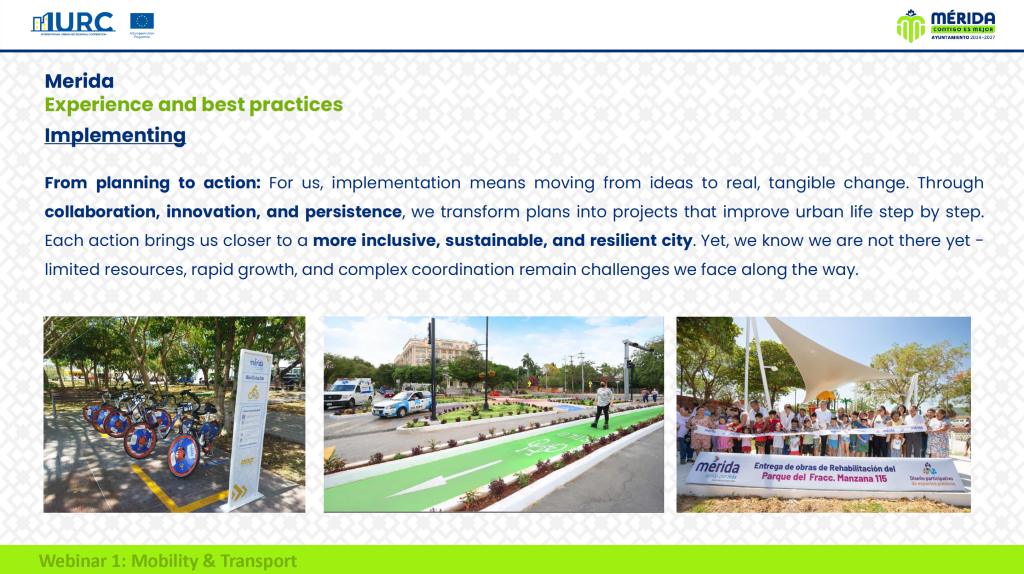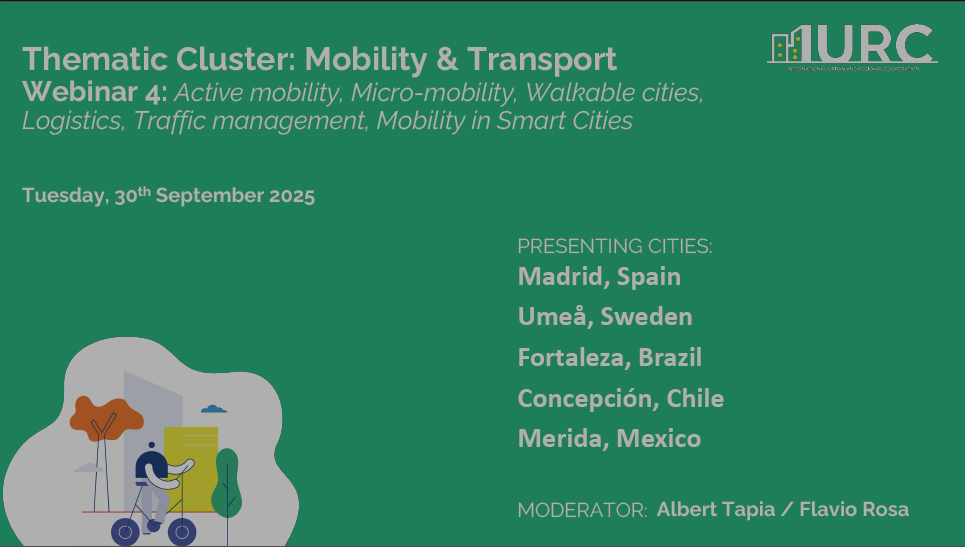The International Urban and Regional Cooperation (IURC) Latin America programme held its fourth thematic webinar on 30 September 2025, bringing together city representatives from Europe and Latin America to exchange best practices in sustainable urban mobility and transport. The session attracted over 20 registrants and featured presentations from Madrid (Spain), Umeå (Sweden), Fortaleza (Brazil), Concepción (Chile), and Mérida (Mexico).
Building Transatlantic Partnerships for Mobility Solutions
Opening the session, Albert Tapia, IURC Cluster Manager, underlined the programme’s role in strengthening cooperation between European and Latin American cities. He encouraged participants to take advantage of the IURC Knowledge Library and European Urban Initiative (EUI) Portal as resources for accessing innovative practices, while also highlighting opportunities to meet in person at the Smart City Expo World Congress (SCEWC) in Barcelona this November.
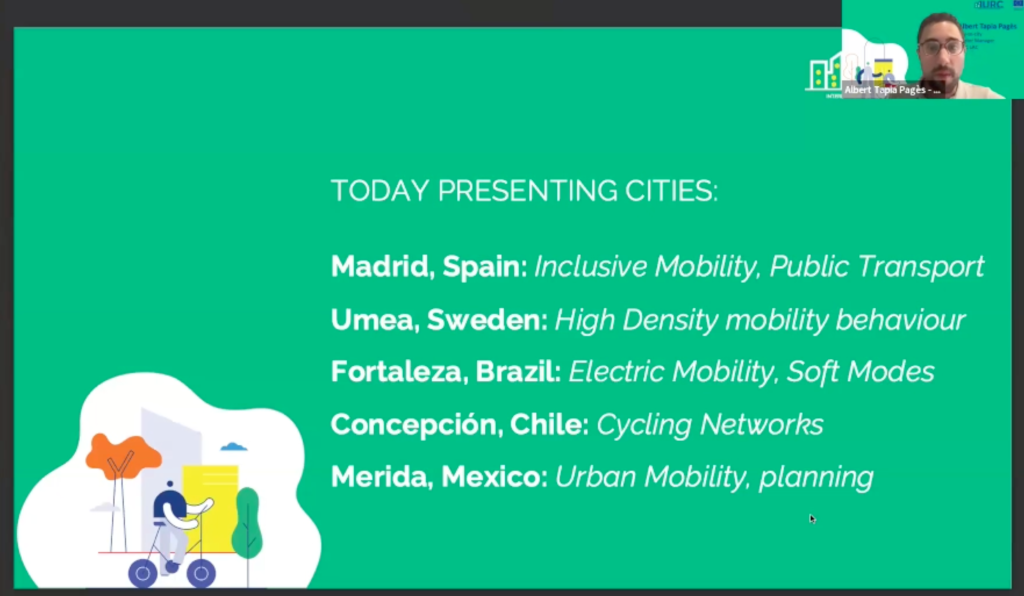
Madrid and Umeå: Citizen-Centered Sustainable Mobility
Madrid presented its comprehensive mobility strategy, highlighting the city’s focus on sustainable modes of transport, including the A5 Green Boulevard project, while Pedro showcased innovations such as integrated mobility hubs and underground parking systems.
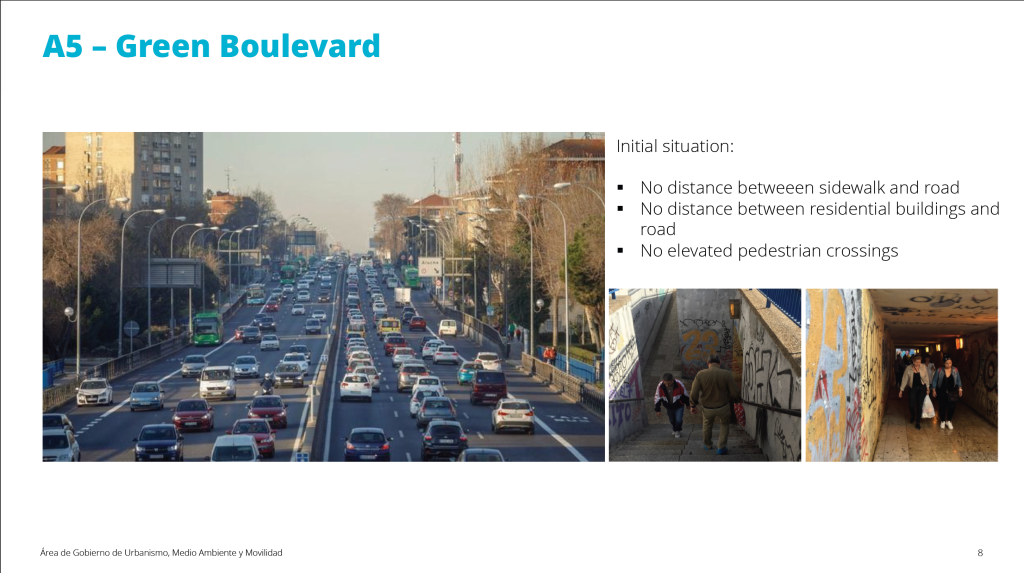
From northern Sweden, Umeå’s approach was detailed, emphasizing investments in electric buses, cycling infrastructure, and participatory engagement to ensure transport solutions reflect citizen needs. Both cities stressed that community participation is critical for long-term success.
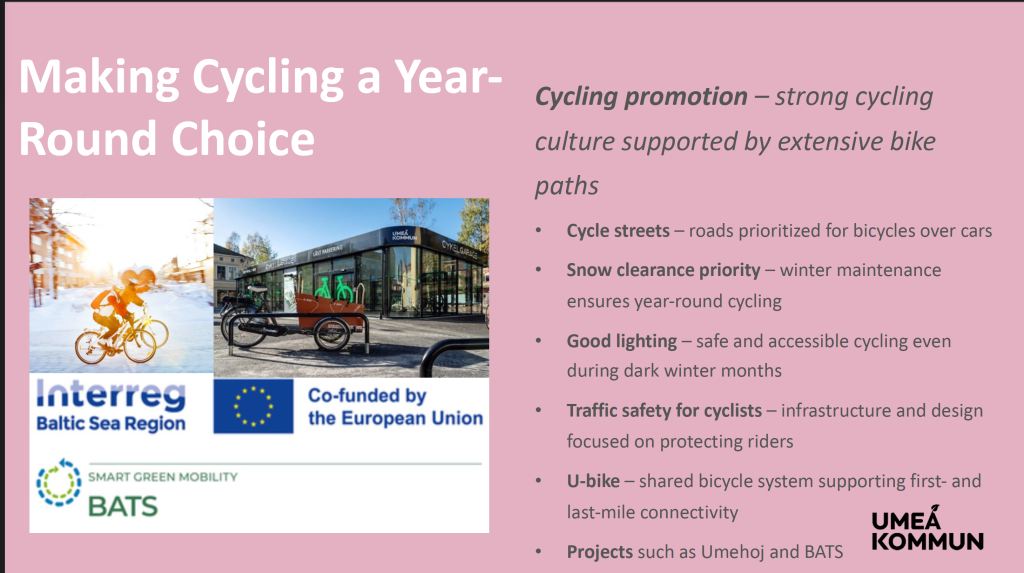
Fortaleza: Active and Electric Mobility Leadership
Fortaleza has transformed its mobility landscape over the last decade. Once plagued by high traffic fatalities, Fortaleza reduced annual road deaths from 370 to 115 in 11 years through bold safety policies such as lower speed limits and exclusive bus lanes.
The city is now advancing active mobility, with its “Cyclingar” public bicycle system expanding to 300 stations and new projects for electric buses, e-bikes for delivery workers, and scooter-sharing services. Fortaleza aims to deliver 50 km of protected cycling lanes by 2028, supported by pilot projects using technology such as safety sensors for cyclists.
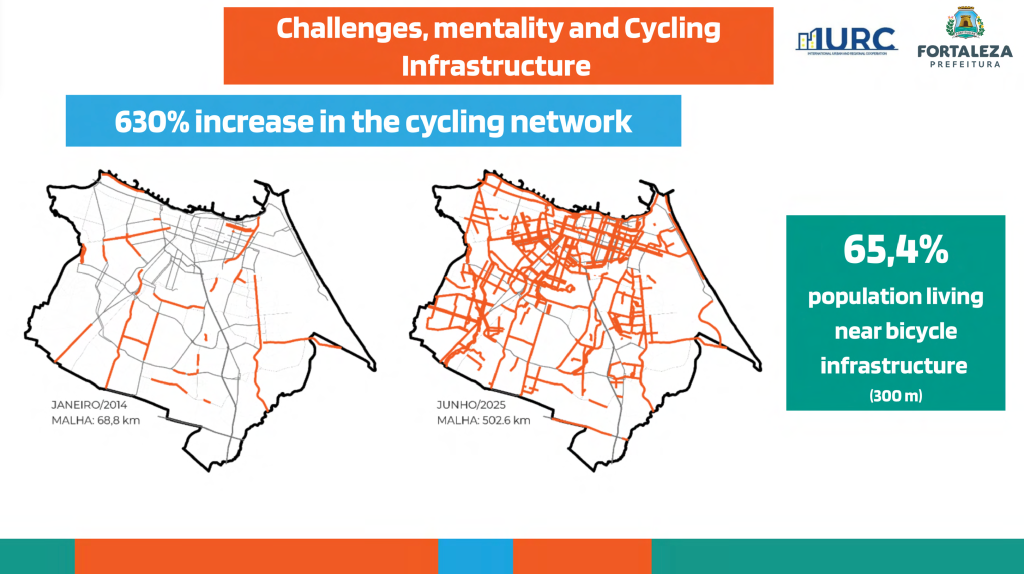
Concepción and Mérida: Overcoming Challenges Through Innovation
Concepción is working to transform urban mobility despite limited budgets and political hurdles. The Chilean city is prioritizing pedestrian-friendly streets, cycling networks, and phased implementation strategies to guarantee continuity across administrations.
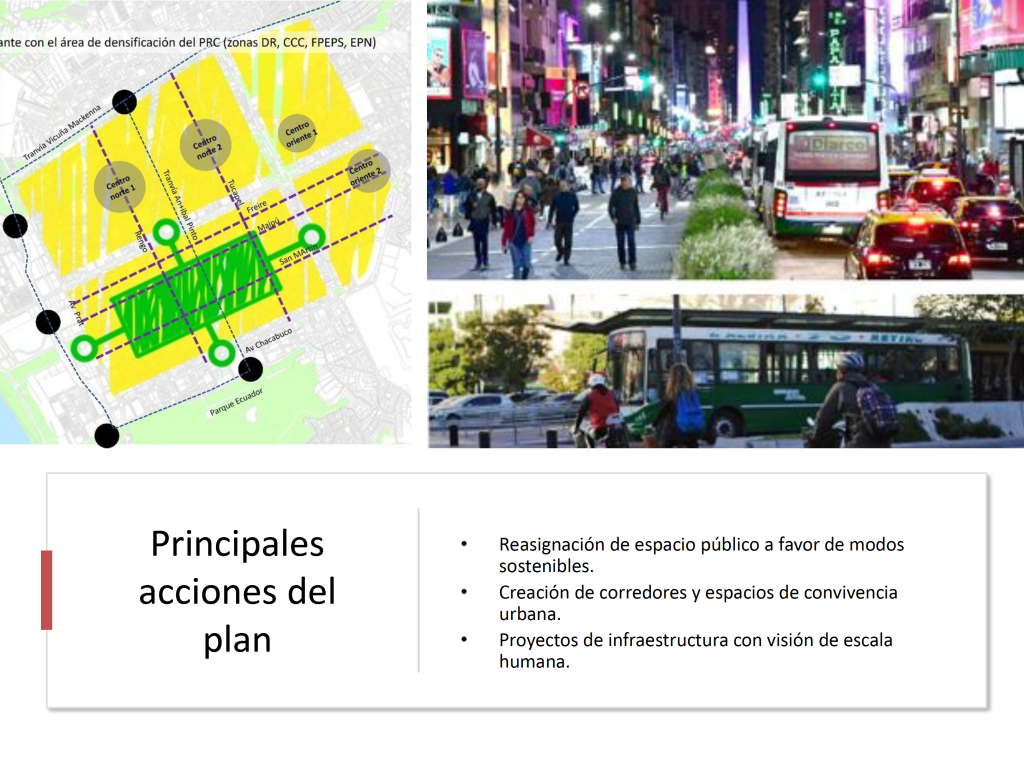
Mérida, facing rapid population growth and limited public transport coverage, has introduced a bike-sharing programme and the participatory “Design Your City” initiative, which enabled residents to vote on and implement 10 mobility projects. The city has also fostered strong cooperation with local universities, forming a specialized working group of 4–5 institutions that has met monthly for nearly two years to co-develop a comprehensive mobility plan.
